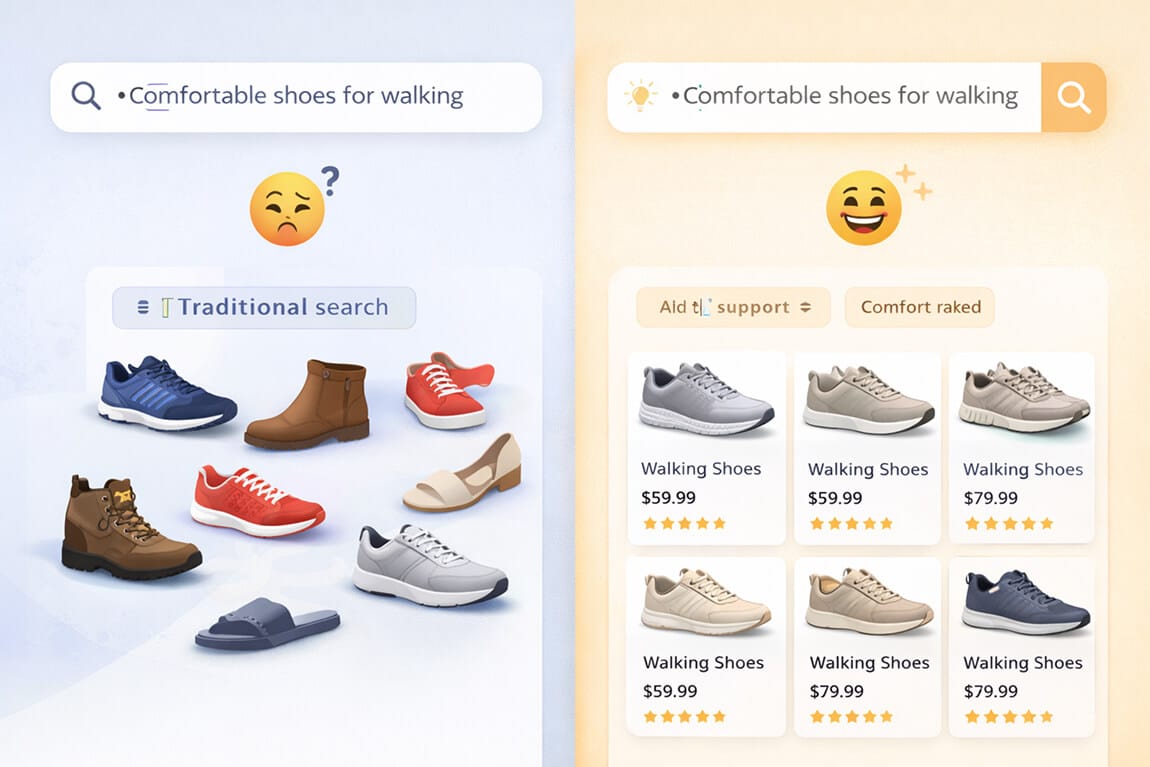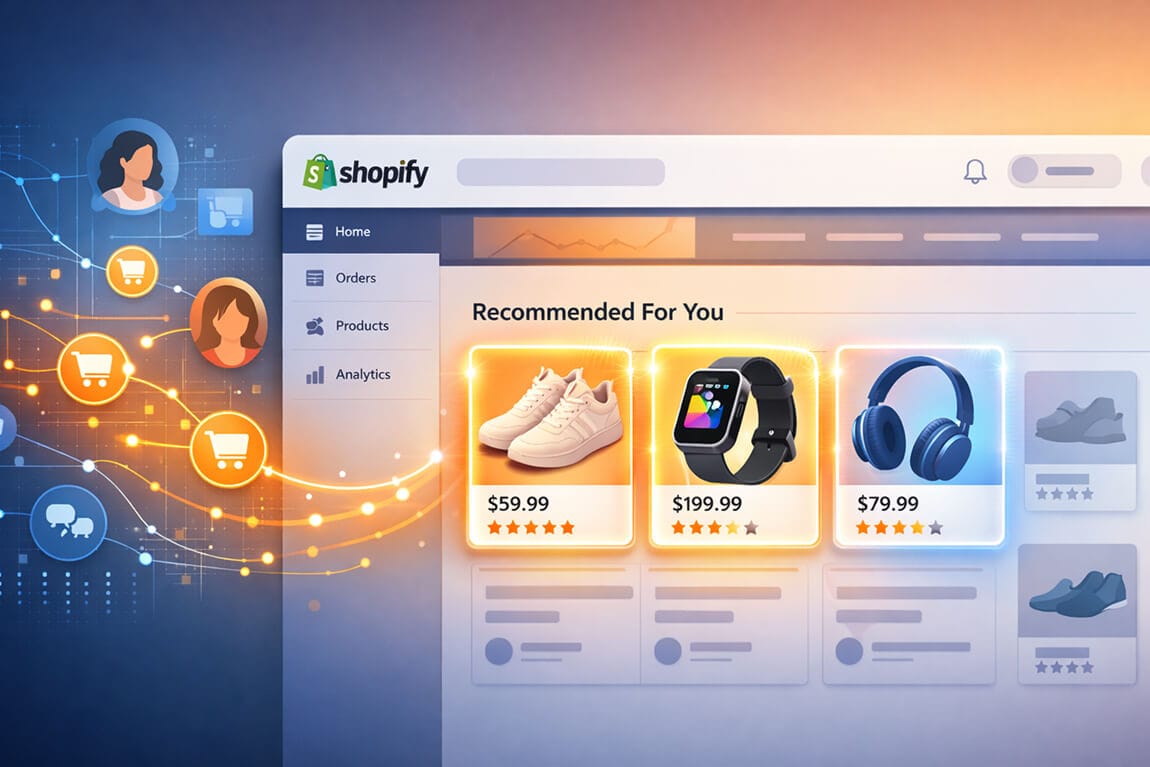
Looking for an eCommerce platform to start or streamline your small business operations? Look no further. We have compiled a list of 5 best eCommerce platforms for small businesses for 2024.
This article will help you identify the best eCommerce solution for your business while comparing the features, pricing, and pros and cons of these individual platforms.
Before we get started, let us briefly understand the state of the small business eCommerce landscape and the trends governing it.
Overview of the eCommerce Landscape in 2024
According to Statista, global retail eCommerce sales are expected to surpass eight trillion dollars by 2027. This proves that the eCommerce industry will continue to grow at an unstoppable rate.
If you are a small business wanting to expand your business, here are some of the latest trends that small business owners must keep an eye on.
- ECommerce personalization will continue to boost shopping experiences.
Around 45% of customers revealed that they are more likely to shop from a brand that offers personalized experiences. Hence, most small businesses are leveraging personalization to build tailored shopping experiences with the help of artificial intelligence. In current times, it is crucial to anticipate the customer's requirements and offer it to them. This can be done via personalized product recommendations, customized shopping journeys, and targeted marketing. - There will be an increased adoption of Augmented and Virtual Reality.
Leveraging augmented reality (AR) and virtual reality (VR) for product visualizations will see an upward shift this year. While AR helps customers visualize products in the real-world environment, VR helps you build immersive shopping experiences. This will boost online shopping experiences by enabling customers to explore the products in a more interactive manner before actually making a purchase. - Buy Now, Pay Later (BNPL) solutions will make the payment process more convenient.
BNPL allows customers to make purchases and pay for them in installments. Customers, particularly the younger demographics, find this appealing. Implementing a BNPL solution is likely to increase your conversion rates as it gives customers more flexibility with the payment process. - Social commerce will gain more exposure.
Shopping via social media calls for direct selling allowing customers to explore, discover, and purchase desired products without leaving the platform. It utilizes social media interactions to turn social networks into sales channels. - Shoppable video content will make shopping more seamless.
Shoppable video content combines video marketing with eCommerce selling by allowing customers to purchase desired products directly from the video. Link product pages to the video or introduce interactive elements that make it possible to explore the products and make the shopping experience more seamless. Businesses are also capitalizing from live streams enabling customers to shop for products in real-time while they are enjoying the live stream.
As technology and innovation continue to progress at an astonishing rate, eCommerce platforms are upgrading their functionalities to support these trends. AI-powered smart product search, personalized product recommendations, multi-channel selling, eCommerce chatbots, and more are elevating shopping experiences for customers.
Before we proceed further, let us understand how to choose the right eCommerce platform for your small business.
Criteria for Choosing an eCommerce Platform
The eCommerce platform plays a crucial role in the success of your online business. However, choosing the right one is quite challenging considering the number of software available in the market today. So, how do you go about selecting the best one for your small business? Here are some key criteria to consider.
- Ease of Use - Look for platforms that offer user-friendly interfaces. It will help you set up and manage your online store without any hassles.
- Features - Assess the features the platform provides. Some of the must-have features are product search, product management, inventory management, shopping cart, checkout module, payment gateways, multichannel selling, store analytics, and more.
- Customization - Choose a platform that allows you to customize the look and feel of your online store to match your brand aesthetics. Integrations - Research whether the platform supports integration with third-party tools, such as email marketing software, customer behavior analytics tool, and more.
- Scalability - Understand if the platform can support your growing business needs - more products, higher traffic, and larger order volumes. The platform must provide additional functionalities as your business expands.
- Pricing Structure - Evaluate the pricing plans and choose the one that fits your budget. Enquire if there are any hidden fees or additional charges before investing.
- Transaction Fees - Opt for a platform that offers transparency about the transaction fees especially if you are wanting to use an external payment gateway.
- Customer Support - Check the level of support the platform provides. Enquire about various support channels - chat, phone, or email support they offer.
- User Reviews - Read user reviews online and learn from their experiences. Understand how the platform helped other businesses overcome their challenges. That being said, let us now explore the top 5 eCommerce platforms for small businesses and understand how they can help you take your online selling to the next level.
Top 5 Ecommerce Platforms You Can Choose for Small Businesses
#1. Shopify

Shopify is one of the most popular and widely-used eCommerce platforms leveraged by small businesses from all over the world. It offers an easy-to-use website builder that enables you to create and manage your online stores without any technical expertise. It provides you with a range of features that help you set up and customize your online store, manage your inventory, accept payments, and fulfill your orders.
Key Features -
- Offers a drag-and-drop website builder
- Provides an intuitive checkout module along with abandoned cart reminders
- Integrates with numerous payment gateways
- Supports a variety of plugins to enhance your store functionality
- Supports various selling options such as preorders, discounts, subscriptions, try before you buy, and more
- Contains a detailed analytics dashboard for monitoring store performance
Pros -
- Offers a user-friendly interface making it easy to set up and use
- Provides a huge library of customizable store design templates
- Shares a real-time view of your store activity
- Can be scaled to meet the needs of your growing small businesses
Cons -
- Does not offer a freemium version
- May incur transaction fees with other payment gateways
- Uses Liquid, a less popular coding language making customizations a bit difficult
- May have to rely on third-party applications for advanced functionality
Ideal For - Best choice for small businesses that are into dropshipping
Starting Price - Starts from $29 per month
Ratings - 4.4/5 stars on G2Crowd
#2. WooCommerce

WooCommerce is an eCommerce plugin that helps you convert your WordPress websites into fully functional online stores. You can install it on your WordPress website as an additional unit (marketplace or shop) or turn your entire website into a store. Being an open-source platform, you can use or modify the code to suit your business requirements.
Key Features -
- Create and manage your products and product catalogs
- Supports orders and inventory management
- Accepts payments through WooPayments (which supports Stripe and PayPal payments)
- Offers an intuitive checkout functionality with upselling and cross-selling capabilities
- Helps you extend the store functionality using third-party plugins
- Generate intelligent reports to monitor store performance
Pros -
- Is beginner-friendly and can be set up without any technical expertise
- Offers a large number of free and paid themes with mobile responsive design
- Offers a large community of active users providing educational resources and ample support
Cons -
- Requires you to buy your own hosting
- May be expensive as some plugins require payment
- Compatible with only WordPress websites
Ideal For - Best choice for small businesses with limited budgets
Starting Price - Although the core platform is free to use, you need to leverage plugins for advanced store functionality. You can buy these plugins on a subscription basis. Further, you have to pay separately for domain registration and hosting.
Ratings - 4.4/5 stars on G2crowd
#3. Ecwid

Ecwid is short for ECommerce Widget. It is another eCommerce tool that allows you to add online store functionalities to existing websites. Besides websites, it allows you to add an online store to your social media pages. Ecwid also offers the flexibility to build one-page websites named Instant Sites that can work as basic standalone online stores having limited functionality.
Key Features -
- Create online stores with customizable design tools
- Sell on social media such as Facebook and Instagram
- Allows easy product and inventory management
- Has a dedicated tax module for doing automated tax calculations
- Supports 50+ payment options
Pros -
- Supports multi-channel selling
- Offers a freemium version
- Integrates seamlessly with major website-building platforms
- Does not charge any additional transaction fees
Cons -
- Supports only 5 products on the free plan
- Does not allow the creation of product variants on the free plan
- No scope for any customizations
Ideal For - Best choice for small businesses looking to sell products on multiple platforms.
Starting Price - Starts from $19 per month allowing you to sell up to 100 products.
Ratings - 4.7/5 stars on G2crowd
#4. BigCommerce

BigCommerce is another eCommerce platform that helps you create online storefronts and sell your products online. Due to its impressive security features, it is widely preferred by businesses all over the world.
Key Features -
- Create an attractive online store using the intuitive website builder
- Add unlimited products and manage your inventory effectively
- Offers centralized order management for faster processing
- Customize the checkout process to deliver better shopping experiences
- Offers intelligent tools for product merchandising
- Supports various payment gateways for easy checkouts
- Gain insights into store performance with detailed analytics
Pros -
- Offers a template library consisting of free and paid website templates
- Supports multichannel selling
- Provides flexibility to design and test website changes in the local environment without any downtime
Cons -
- May include transaction fees when using external payment gateways
- Involves a learning curve for customizations
Ideal For - Best choice for small businesses planning to scale up rapidly
Starting Price - Starts from $29 per month (billed annually)
Ratings - 4.2/5 stars on G2crowd
#5. Wix

Wix is the last one on this list of best eCommerce platforms for small businesses. It offers an easy-to-use and customizable website builder that allows you to create online stores without any technical expertise.
Key Features -
- Create an attractive website using the drag-and-drop visual editor
- Import products into your store and manage them
- Offer seamless checkout experiences by optimizing shopping carts
- Enhance store functionality by installing intuitive apps
- Offers SEO module to ensure website visibility on search engines
Pros -
- Best suited for small businesses
- Offers an extensive library of over 500 templates
- Is mobile-responsive to ensure a seamless user experience
- Offers a freemium plan
Cons -
- The freemium version does not support adding your own domain name
- Your website might encounter slow loading speeds
- Switching between templates will call for additional work
Ideal For - Best choice for small businesses wanting an affordable eCommerce solution
Starting Price - Starts from $27 per month
Ratings - 4.2/5 stars on G2crowd
Comparative Analysis of the Best Ecommerce Platforms
Here is a quick overview of these platforms to aid your decision-making.
| Overall Rating | Quality of Support | Free Plan | Pricing | |
|---|---|---|---|---|
| Shopify | 4.4/5 stars | 24/7 customer support via chat, phone, and email | No | $29 per month for Basic Plan |
| WooCommerce | 4.4/5 stars | Community support | Yes | The platform is free. You pay for various plugins you install. |
| Ecwid | 4.7/5 stars | Chat, phone, and email support on higher plans | Yes | $19 per month for Venture Plan |
| BigCommerce | 4.2/5 stars | 24/7 customer support via chat, phone, and email | No | $29 per month for Standard Plan |
| Wix | 4.2/5 stars | Chat, phone, and email support on higher plans | Yes | $27 per month for Core Plan |
Future-Proofing Your eCommerce Choice
Choose an eCommerce platform that would support your business for the long term. Opt for a platform that offers continuous learning resources and training opportunities. This will empower you to leverage the entire platform and its features for streamlining your business. Select one that would scale with your business needs and offer flexible integrations to connect with external tools for optimizing your business strategies. Besides, having an excellent customer service and technical support team would be of great help when troubleshooting issues or seeking any assistance for your store.
Having a platform that provides AI-powered features, such as AR, VR, intelligent product search, and more would keep your store competitive. Similarly, being a part of the small business community that shares recent industry news, resources to boost sales, and valuable insights and solutions to challenges will support you with your business objectives.
Conclusion
Selecting the right eCommerce platform plays a crucial role in the success of small businesses. Choose a platform by carefully evaluating its features, cost, and customer support initiatives. The platform must align with your business's unique requirements and support your growth goals. We hope this list of the best eCommerce platforms has helped you select an ideal solution for your business.
Frequently Asked Questions
The easiest way to start an eCommerce business is by leveraging the best eCommerce platforms we mentioned in this post like Shopify, WooCommerce, or any other. These platforms help you set up your online store without any hassles. All you need to do is import your products and start marketing your business to drive traffic and sales.
There is no limit on the amount you can make in eCommerce. A new eCommerce store can make up to $63000 (https://gritglobal.io/blog/how-much-can-you-make-from-ecommerce/) in monthly revenue in three months. However, this amount depends on a variety of factors, such as your industry, market demand for products, and so on.
You can start an eCommerce store by signing up for an intuitive eCommerce platform and building your online store. Once your store is set up, you can add your products and their pricing to start selling.
A profitable eCommerce business depends on various factors such as product selection, business strategy, market demand, marketing campaigns, and more. Usually, high-demand products like fashion, apparel, health, pet care, beauty, and electronic gadgets have shown immense success over the last few years.
Some of the cheapest eCommerce business ideas include a print-on-demand store, dropshipping store, affiliate marketing website, and digital products store.
You can sign up for a free eCommerce platform like Ecwid and start a small business like dropshipping, selling digital products, affiliate marketing, or any other business.










